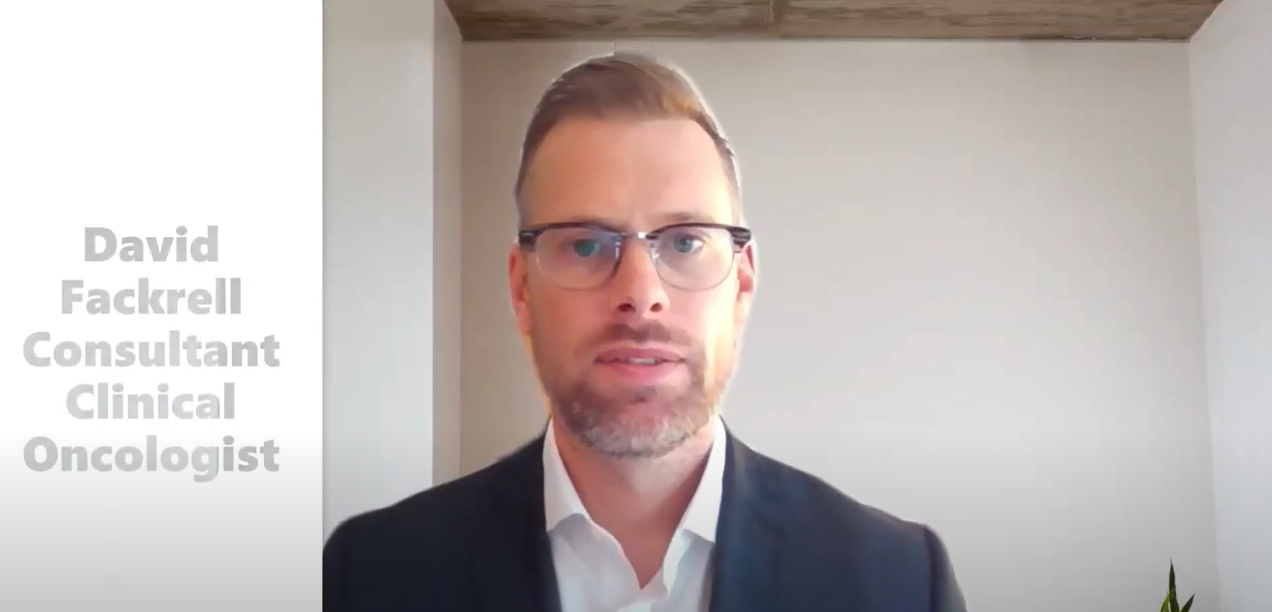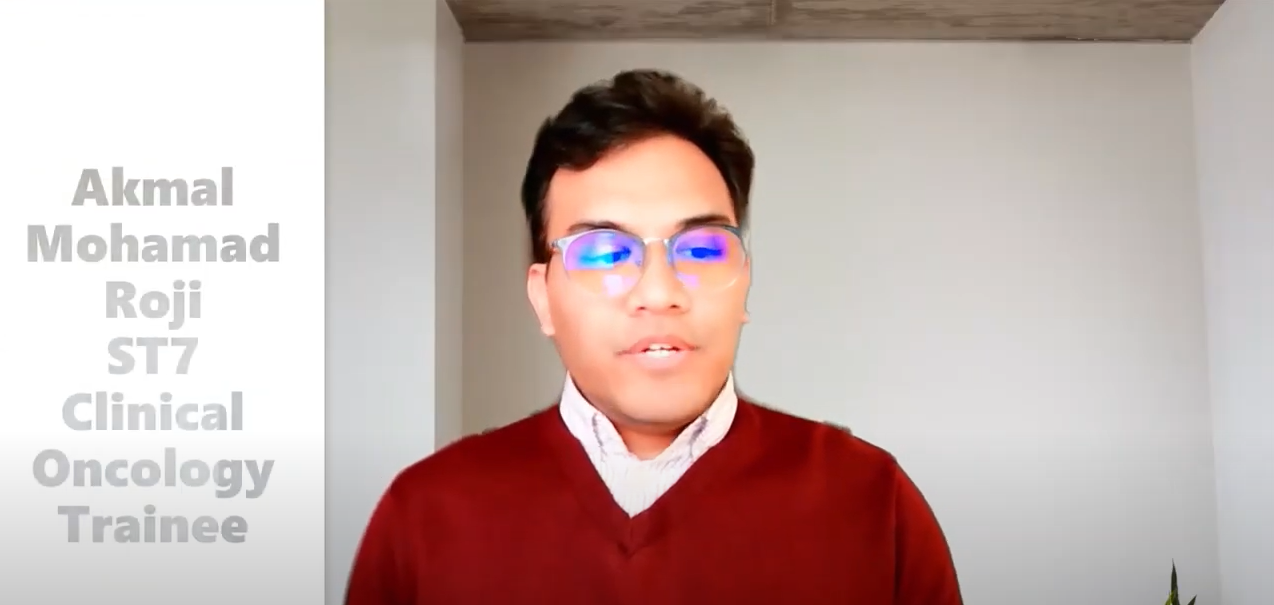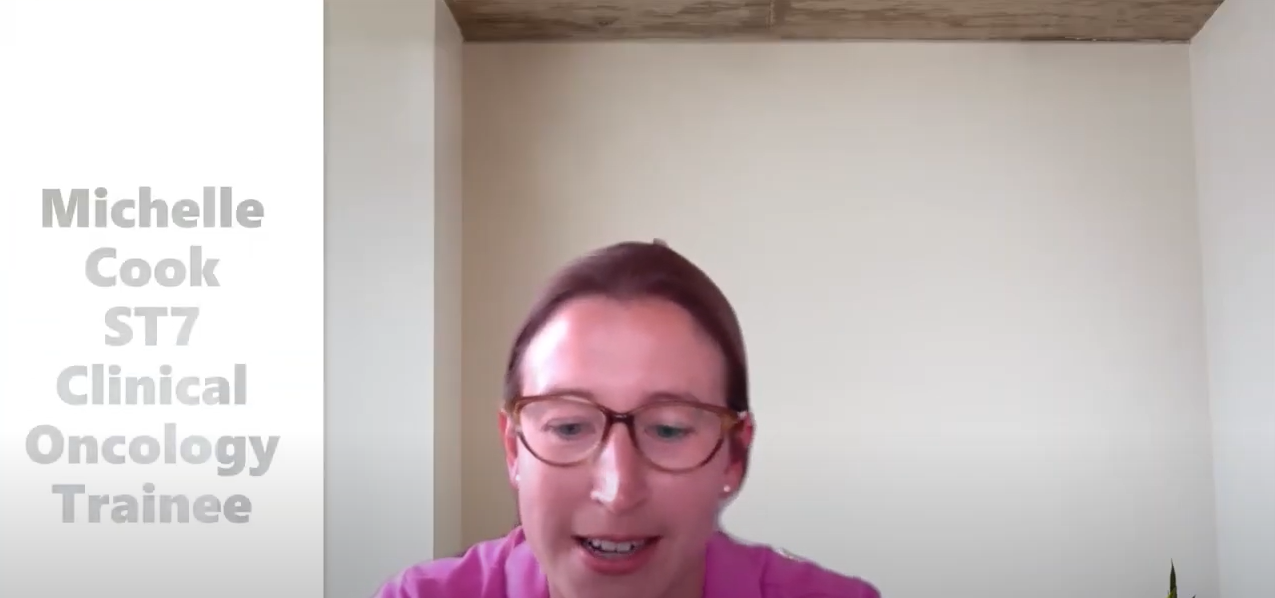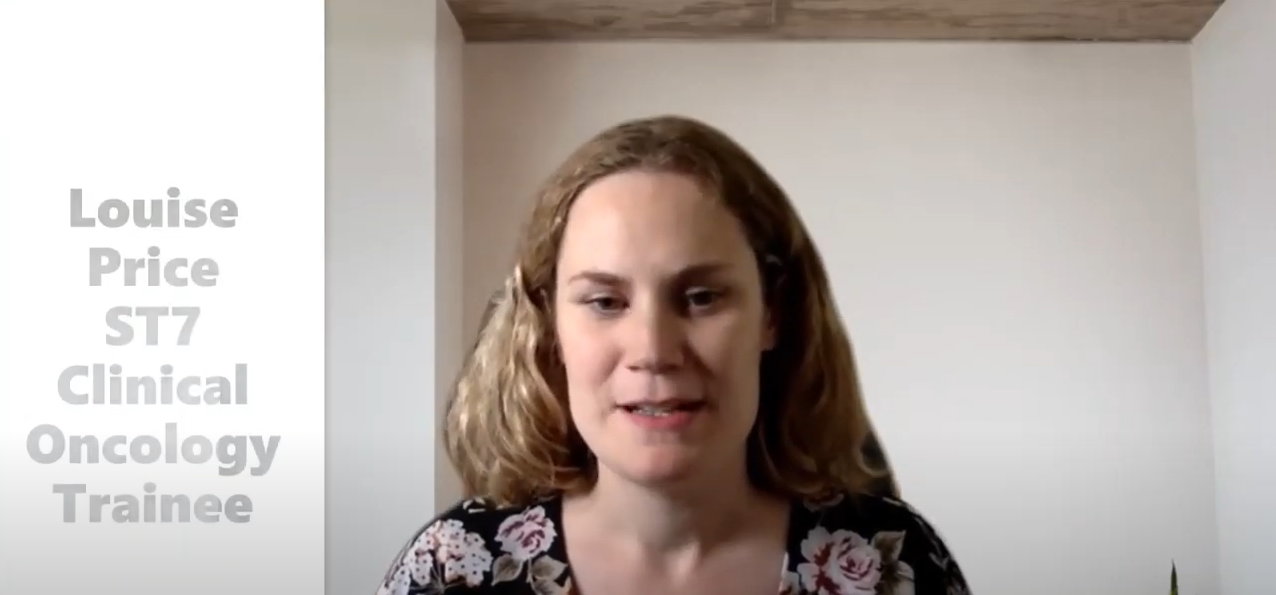Introduction
Clinical Oncology is a rewarding and diverse speciality which has something for all trainees. Drug and radiotherapy treatments for cancer improve continuously allowing for an evolving and interesting career.
As a West Midlands trainee in clinical oncology, you can expect to be involved in modern radiotherapy and drug therapy as treatments for all types of malignancy. You will be involved in phase 2 and 3 research and treat patients with acute complications of cancer from day one.
Training in the West Midlands is spread over 6 hospitals: Queen Elizabeth, Birmingham; New Cross, Wolverhampton; University Hospital Coventry and Warwickshire; Worcester Royal; University Hospital North Midlands and the Royal Shrewsbury Hospital.
Click on the image below for David Fackrell's introducton to clinical oncology:

Training experience
Clinical oncology is a group 2 speciality and therefore, you will not be asked to participate in the general medical rota.
You will be well supported throughout training in clinics, radiotherapy planning, MDTs and ward rounds that offer a wide variety of experience and provide excellent learning opportunities.
Preparation for examinations is provided with weekly protected teaching, monthly consultant led training days and in the first year the opportunity to join exam preparation courses in Birmingham or Manchester.
Click on the image below to watch Akmla Roji talk about his training experience:

Less than full time training
We are fully supportive of LTFT trainees and job plans are adjusted to ensure adequate experience.
Less than full time training can be taken to help with a caring or parental role but also to pursue research, education or other aspirations.
Click on the image below to watch Michelle Cook talk about less than full time training:

Research opportunities
Working in clinical oncology aligns well with trainees interested in a career in academic medicine. Trainees are encouraged to take time out to take up a period of research such as a clinical fellowship of further degree and balance non-work commitments.
Click on the image below to watch Louise Price talk about research opportunities:
